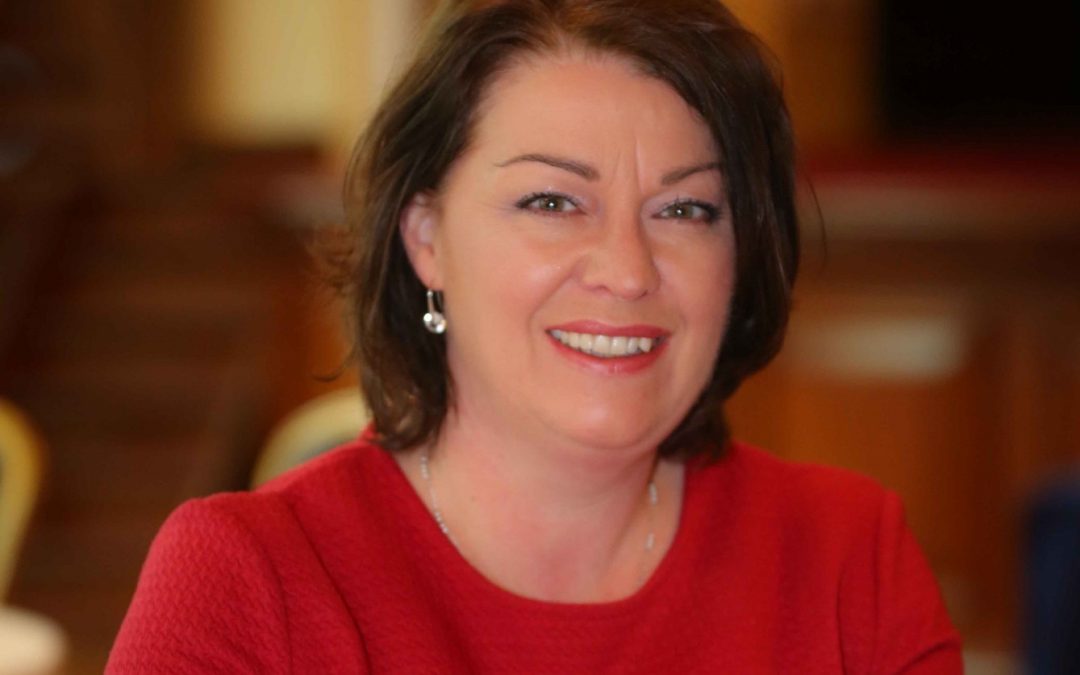Ahead of the entry deadline for the 2020 CO3 Awards, Consulting Partner Donal Laverty takes a closer look at the remarkable story of this year’s winner of the Leading Organisation Change Award, Lynn Carvill.
As part of our ongoing support for organisational transformation and helping organisations to ‘come back stronger’ from the challenges of a modern working environment, we continue to champion the Baker Tilly Mooney Moore and CO3 Award for Leading Organisation Change. The award encourages best practice in delivering transformation in the third and charity sectors. Last year, the award went to Women’sTec.
Women’sTec is a North Belfast based training provider of ‘non-traditional’ skills for women. The charity upskills and enables women to return to employment in a range of sectors, as well as contributing to a diverse workforce and tackling skills shortages in the construction and ICT industries.
Like many Third Sector organisations, Women’sTec draws its income from a range of statutory and grant funds. And just like the rest of the sector, the organisation had been rocked by the downward pressure on public funds; a more competitive funding environment and competing policy priorities. For Women’sTec though, worse was to come, when in December 2017 the organisation was unsuccessful in a funding application. It meant that overnight, they lost 80% of their core funding. If funding was not in place by March 2018 – the organisation would close and all staff would be made redundant. It could have been the end of the road for the organisation.
The challenge of facing closure drew out the transformational leadership skills of the Chief Executive, Lynn Carvill. With the support of her Board, she set about developing a strategic plan to raise the funds required to ensure the organisation continued. Lynn undertook a strategic analysis of the organisation and put in place a sustainable recovery plan, matched by securing diversified sources of income to create a more stable and financially viable organisation; one that could continue to deliver and maintain services to the beneficiaries and wider stakeholders. In little more than ten months, Lynn managed to secure and diversify income including adopting new partnership models; almost doubling the number of service users and increased the staff headcount.
Core to this ‘turnaround’ was a deep and unwavering ‘belief in the cause’ of the organisation – in the values and work of the organisation and its impact on the beneficiaries. Lynn truly believed in the work of her organisation and its value to our society. Most successful transformations stem from a powerful vision and a strong belief by a true leader. This enables followership, and from followership comes a collaborative effort to reaching new goals and striving forward.
Lynn is no stranger to resilience. This is another critical success factor, as transformative and systemic change is non-linear, and progression is often followed by setbacks. But a resilient team works together to overcome those setbacks. Lynn talked about open communications, building morale, and everyone knowing what was going on. She engaged an openness to her team which demonstrated an authenticity in leadership which her team, her board – and ultimately – those funders she was trying to get money from, trusted in. Underpinning the revival of Women’sTec however was a deep seated set of shared values which aligned amongst the team. Values around respect, deep understanding and common goals ensured a collaborative effort to support Lynn’s vision and leadership approach.
If you speak to Lynn about that time, you’ll be struck by how the conversation is focused less on the transformative effort of saving Women’sTec from where it was, but more on a future for Women’sTec – a future full of possibilities; a future of new partnerships; a future of growth. This has got to be an example of transformative leadership at its best.
The closing date for entries to this year’s CO3 Leadership Awards is 12 noon on Friday 1 November 2019. Visit www.co3.bz to find out more.
This article first appeared in the News Letter on 22 October 2019.

